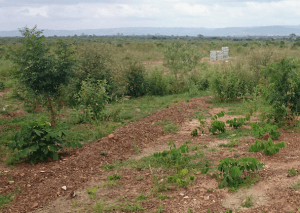Natural regeneration, best method to restore land – World Vision
 Mr Samuel Abasiba, the Talensi District Manager of World Vision Ghana in charge of Farmer Managed Natural Regeneration (FMNR), has called on government to adopt FMNR as the best land restoration approach especially in the northern parts of the country.
Mr Samuel Abasiba, the Talensi District Manager of World Vision Ghana in charge of Farmer Managed Natural Regeneration (FMNR), has called on government to adopt FMNR as the best land restoration approach especially in the northern parts of the country.
He said the FMNR method of rejuvenating land would improve food security and wellbeing of communities and enrich degraded lands, with little or no cost.
The low-cost and sustainable land re-greening method involves selection of shrouds from tree stumps which is pruned regularly to speed up the growth of the tree.
Mr Abasiba said for the North, known for its long spells of drought and prolonged free grazing of animals, tree planting was not the best option as the two challenges were daunting, “the FMNR method helps to re-green the environment and is self sustaining and has proved to be better than nursing and planting new trees”.
Mr Abasiba made the call in an interview with Ghana News Agency in Tongo in the Talensi District of the Upper East Region.
Facilitated by World Vision Ghana (WVG) and funded by W.V. Australia, the FMNR project is working in 57 communities in the Upper East Region, with over 1,500 hectares of land restored from degradation in the Talensi District as well as improved the economic purse of women and men in the area.
Responding to the role of gender in the projects, he said, the role of women in FMNR has been very impactful “women are closer to the environment in terms of searching for non- timber products, hence their commitment to ensuring sustainability is high”.
Mr Abasiba said equal representation of men in the project was encouraging and noted that lead farmers were significant in pruning and nurturing of tree shrubs and above all helping to manage the projects.
He said though World Vision was preparing its exit the FMNR interventions in the Talensi District by middle of the year, his outfit was putting in place plans to build local capacities to ensure communities continued to sustain the benefits of the project .
He expressed the hope that with more funding, WVG could spread the interventions to other districts in the region.
Other FMNR interventions are prominent in the Garu, Kassena -Nankana, and Bawku West districts.
Source: GNA
